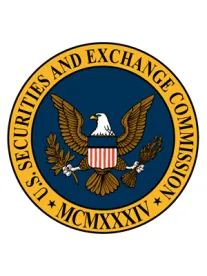The Division of Examinations (the Division) (formerly known as the Office of Compliance Inspections and Examinations, or OCIE) of the U.S. Securities and Exchange Commission (SEC) released its annual list of 2021 Examination Priorities on March 3, 2021.
Many of the Division’s 2021 examination priorities, including focus on conflicts of interest for brokers and investment advisers, among others, are perennial risk areas that the Division routinely prioritizes. While the SEC release discusses new issues in greater detail than continuing areas of interest, practitioners should continue to focus on these areas and monitor whether the SEC provides guidance throughout the year.
In its 2021 report, the Division emphasizes its enhanced focus on climate and environmental, social and corporate governance (ESG)-related risks through examination of industry participants’ proxy voting policies and practices in efforts to ensure that such voting aligns with the best interests and expectations of investors, as well as industry participants’ business continuity plans, considering the greater physical risks associated with climate change. Acting SEC Chair Allison Herren Lee stated, “Through these and other efforts, we are integrating climate and ESG considerations into the agency’s broader regulatory framework.”
Most securities industry participants (with a specific emphasis on registered investment advisers (RIAs), broker-dealers, registered investment companies, municipal advisors, and transfer agents) are subject to examination. Such examinations remain firmly grounded in four pillars: promoting compliance, preventing fraud, identifying and monitoring risk, and informing policy. Accordingly, the Division has continued its practice of organizing its priorities around thematic areas. This GT Alert summarizes key points in the 2021 thematic areas, which are:
- Retail Investors, Including Seniors and Those Saving for Retirement
- Information Security and Operational Resiliency
- Financial Technology (Fintech) and Innovation, Including Digital Assets
- Anti-Money Laundering (AML) Programs
- The London Inter-Bank Offered Rate (LIBOR) Transition
- Additional Focus Areas Involving RIAs and Investment Companies
- Additional Focus Areas Involving Broker-Dealers and Municipal Advisors
- Market Infrastructure
- Focus on Oversight of FINRA (Financial Industry Regulatory Authority) and MSRB (Municipal Securities Rulemaking Board)
Retail Investors, Including Seniors and Those Saving for Retirement
Protecting retail investors, such as seniors and those saving for retirement, is a perennial examination priority. The Division will continue to prioritize retail-targeted investments such as mutual funds, ETFs, municipal securities and other fixed income securities, variable annuities, private placements, and microcap securities. Further, the Division will prioritize new examination approaches to promote compliance and inspect firms in both broker-dealer and investment adviser/investment company programs with respect to Regulation Best Interest (17 C.F.R. Part 240) and Form CRS. In December 2020, the SEC’s staff issued a Statement on Recent and Upcoming Regulation Best Interest Examinations, under which the Division identified components of Regulation Best Interest that may be the subject of focus in the next phase of examinations, including how firms have considered costs in making a recommendation and the processes firm personnel have used to recommend complex products.
The Division noted that it is extremely important that registered firms provide investors with the disclosures required by the federal securities laws, including those relating to fees and expenses, and to conflicts of interest (another continuing emphasis of the SEC). These disclosures will help enable the investing public to make better informed choices. As an overarching precept, RIAs should be aware of their duties of care and loyalty and be careful not to render interested advice unless all conflicts are fully disclosed.
Information Security and Operational Resiliency
The Division will continue to prioritize information security. Examinations will focus on reviewing business continuity and disaster recovery plans of firms, but the Division will shift its focus to whether such plans are accounting for the growing physical and other relevant risks associated with climate change. In light of substantial disruptions to normal business operations in 2020, the Division will review whether systemically important registrants are considering effective practices to help improve responses to large-scale events.
Given the increase in remote operations in response to the pandemic, the Division will focus on whether firms have taken appropriate measures to: (1) safeguard customer accounts and prevent account intrusions, including verifying an investor’s identity to prevent unauthorized account access; (2) oversee vendors and service providers; (3) address malicious email activities, such as phishing or account intrusions; (4) respond to incidents, including those related to ransomware attacks; and (5) manage operational risk as a result of dispersed employees in a work-from-home environment.
Financial Technology (Fintech) and Innovation, Including Digital Assets
The Division’s exam priorities often evolve in response to new technological trends. For example, the Division notes that registered firms are providing advice to clients through automated investment tools and platforms (often referred to as “robo-advisers”) or offering automated asset allocation, fractional share purchases, customized portfolios, and mobile applications. Generally, examinations will focus on evaluating whether firms are operating consistently with their representations, whether firms are handling customer orders in accordance with customer instructions. The Division will review compliance around trade recommendations made in mobile applications.
With respect to digital assets, as the market continues to evolve, examinations will assess the following: (1) whether investments are in the best interests of investors; (2) portfolio management and trading practices; (3) safety of client funds and assets; (4) pricing and valuation; (5) effectiveness of compliance programs and controls; and (6) supervision of representatives’ outside business activities.
Anti-Money Laundering (AML) Programs
The Division will continue to examine broker-dealers and investment companies for compliance with their AML obligations. Examinations will seek to confirm that firms have established appropriate customer identification programs that satisfy their SAR filing obligations, conduct due diligence on customers, comply with beneficial ownership requirements, and conduct independent tests of their AML programs.
The London Inter-Bank Offered Rate (LIBOR) Transition
Financial markets may be significantly impacted by the discontinuation of LIBOR. The Division recognizes that a discontinuation of LIBOR can also present a material risk for RIAs, broker-dealers, investment companies, municipal advisors, transfer agents and clearing agencies. Through examinations, the Division intends to assess registrants’ understanding of any exposure to LIBOR and their preparations for the expected discontinuation of LIBOR and the transition to an alternative reference rate, in connection with registrants’ own financial matters and those of their clients and customers.
Additional Focus Areas Involving RIAs and Investment Companies
RIA Compliance Programs
Of particular concern to RIAs and investment companies, the Division will continue to focus on the appropriateness of account selection, portfolio management practices, adequacy of disclosures, custody and safekeeping of client assets, best execution, fees and expenses, and valuation of client assets for consistency and appropriateness of methodology. Furthermore, the Division will continue to review the compliance programs of RIAs, including whether such programs are reasonably designed, implemented, and maintained. In addition, the Division will continue to prioritize examinations of RIAs that have not been examined for a number of years to focus on whether the compliance programs of RIAs have been appropriately adapted in light of any substantial growth or change in their business models.
In addition, the Division notes that RIAs are increasingly offering investment strategies that focus on ESG factors. The Division will examine products in this area that are widely available to investors including open-end funds and ETFs, as well as those offered to accredited investors such as qualified opportunity funds. The Division intends to review the consistency and adequacy of the disclosures RIAs and fund complexes provide to clients regarding these strategies, determine whether the firms’ processes and practices match their disclosures, review fund advertising for false and misleading statements, and review proxy voting policies and procedures and votes to assess whether they align with the strategies.
Furthermore, the Division will review RIAs that are dually registered as, or are affiliated with, broker-dealers, or have supervised persons who are registered representatives of unaffiliated broker-dealers to assess compliance risks, including the misuse of non-public information, conflicts of interest, inadequately disclosed fees and expenses, and the use of affiliates to provide services to clients.
Registered Funds, Including Mutual Funds and ETFs
The Division intends to focus on disclosures to investors, valuation, filings with the Commission, personal trading activities, and contracts and agreements. In particular, in connection with valuation and the resulting impact on fund performance, liquidity, and risk-related disclosures, the Division will review for investments in market sectors that have experienced stress due to the pandemic, such as energy, real estate, or products such as bank loans and high yield corporate and municipal bonds. In addition, the Division intends to review disclosures and practices related to securities lending. Furthermore, the Division plans to prioritize examinations of mutual funds or ETFs that have not been previously examined, or not examined in a number of years.
RIAs to Private Funds
The Division will continue to focus on advisers to private funds, and will assess compliance risks, including a focus on liquidity and disclosures of investment risks and conflicts of interest. Specifically, the Division will review for, among other things: preferential treatment of certain investors by advisers to private funds that have experienced issues with liquidity; portfolio valuations and the resulting impact on management fees; adequacy of disclosure and compliance with any regulatory requirements of cross trades, principal investments, or distressed sales; and certain conflicts around liquidity.
Additional Focus Areas Involving Broker-Dealers and Municipal Advisors
Broker-dealer examinations will focus on sales practices, retail-targeted investments, the safety of customer cash and securities, certain types of trading activity, the effects of evolving commissions and other cost structures on best execution, and the operations of alternative trading systems.
With respect to municipal advisors, the Division will examine whether they have met their fiduciary duty obligations to municipal entity clients, including the disclosure and management of conflicts of interest, and the documentation of the scope of their client engagements. In addition, the Division will examine whether they have satisfied their registration, professional qualification, and continuing education requirements.
Market Infrastructure
The Division notes that it will conduct risk-based examinations of clearing agencies that will focus on compliance with, among other things, the SEC’s Standards for Covered Clearing Agencies and other federal securities laws applicable to registered clearing agencies. For national securities exchanges, the Division will focus on exchange operations to monitor, investigate, and enforce member and listed company compliance with exchange rules and the federal securities laws. With regard to transfer agents, the Division will focus on the timely turnaround of items and transfers, recordkeeping and record retention, and safeguarding of funds and securities.
Focus on FINRA and MSRB
The Division will continue to conduct risk-based oversight examinations of FINRA with a focus on FINRA’s operations and regulatory programs and the quality of FINRA’s examinations of broker-dealers and municipal advisors. With regard to the MSRB, the Division will examine the effectiveness of its policies, procedures, and controls.
Conclusion
The Division’s 2021 priorities are by no means exhaustive, and actual examinations will include inquiries into a variety of other areas based upon changes in market conditions, regulations, industry practice, information uncovered by the Division, and principles of investor protection. As we have seen in previous years, developments during the 2021 calendar year may prompt the Division to expand or modify its focus on these and other issues facing the securities industry. Industry participants should consult with counsel periodically to assess how the SEC’s latest guidance, or newest regulation, may affect their business models and compliance programs.
Registrants should keep in mind that the Division also will shift its resources to conduct additional “for cause” examinations, where specific matters come to light regarding a particular registrant or class of registrants.




 />i
/>i

